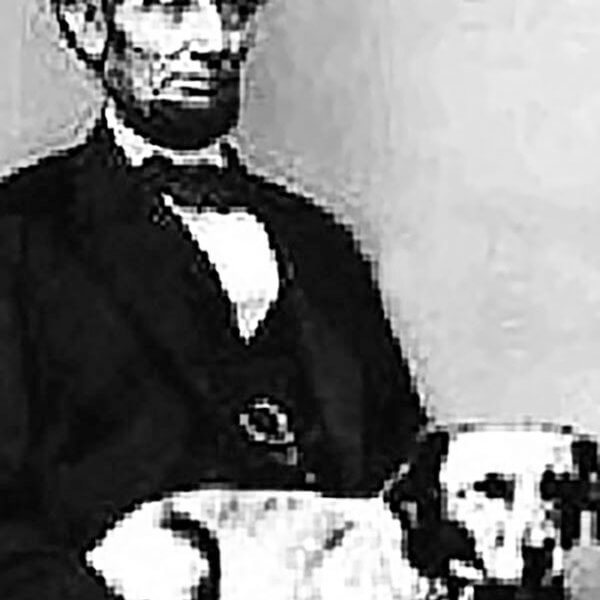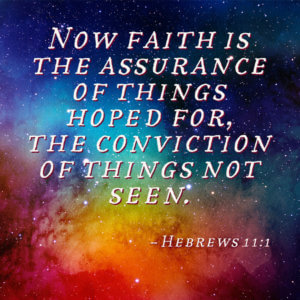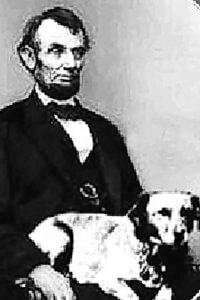
Bloom Where You’re Planted
Most of you know that Jere and I have a family wedding coming up this next week. Our daughter Aubrey was married in June, and our son Judson, the elder of our two children, will marry the lovely Sofia von der Schulenburg Saturday evening in New Orleans. I’m the Mother of the Groom this time around, and I also have the amazing privilege of officiating at the wedding. I’ll be conducting the public contract portion of the ceremony, as well as bestowing God’s blessing on the new marriage. As a lawyer mom, I love the public contract part of the ceremony — where first the bride, and then the groom, agrees to take the other as a lawfully wedded spouse, living together in the new land of the covenant of marriage, however life unfolds — for the whole rest of their lives.
 This is a really bold, faithful choice for anyone. Last week we talked about the statement of faith in the letter to the Hebrews — the assurance of things hoped for, the conviction of things not seen. New couples make the courageous, faithful choice to trust in a future they cannot see, and make their home together in whatever new environment and context their individual pasts lead them into as a newly married couple.
This is a really bold, faithful choice for anyone. Last week we talked about the statement of faith in the letter to the Hebrews — the assurance of things hoped for, the conviction of things not seen. New couples make the courageous, faithful choice to trust in a future they cannot see, and make their home together in whatever new environment and context their individual pasts lead them into as a newly married couple.
Our reading from Jeremiah today describes God’s people’s faithful, courageous choice to make a new, unfamiliar environment their home. The Israelites are in exile, captives in strange and unfamiliar Babylon, in a time of dislocation, confusion, and pain. There’s no Temple for worship, no godly rulers, and no laws based on the people’s long experience with God — handed down from Abraham and Moses, telling them what to do and how to live. Then the prophet
Settle in Babylon
Jeremiah hears new instructions from God for the Israelites in exile. Jeremiah tells them that God wants them to settle into Babylon and build houses for their families to live in and to plant crops for their livelihood. Settle? Wait, WHAT?!
And then, that’s not all! God also instructed them to “multiply there,” marrying and producing children. Then God raises the stakes again. Jeremiah tells the people God wants them to be members of the community: Seek the welfare of the city where I have sent you into exile, and pray to the Lord on its behalf, for in its welfare you will find your welfare. Well that’s certainly surprising. Maybe I should repeat that again — just for myself. Seek the welfare of the city where I have sent you into exile, and pray to the Lord on its behalf, for in its welfare you will find your welfare.
 The Hebrew word for this welfare here is shalom, which is often translated as peace but also includes the notions of justice and righteousness. God tells the people to bloom where they’re planted, not just exist and survive until life returns as they remember and love it, but dig deep, put down roots, and live, love, and thrive in a context that is strange to them. I don’t know about you, but Jeremiah is speaking truth into my context today. How many of us are hedging our bets? Whether in our relationships, our plans for the future, or our commitments to God and community. Are we waiting to see what might happen when things get back to normal — after COVID, after hurricane season, after vacation, after the recession, after the wedding?
The Hebrew word for this welfare here is shalom, which is often translated as peace but also includes the notions of justice and righteousness. God tells the people to bloom where they’re planted, not just exist and survive until life returns as they remember and love it, but dig deep, put down roots, and live, love, and thrive in a context that is strange to them. I don’t know about you, but Jeremiah is speaking truth into my context today. How many of us are hedging our bets? Whether in our relationships, our plans for the future, or our commitments to God and community. Are we waiting to see what might happen when things get back to normal — after COVID, after hurricane season, after vacation, after the recession, after the wedding?
Are we putting off commitment to see if something better comes along? Are we holding off on our own shalom — the peace, love, and justice — of our here and now lives while we wait for the Good Old Days to return? Are we avoiding commitment to our new present and yet unseen future? Are we refusing God’s invitation to bloom where we’re planted while we polish and idealize a golden time in our happy memories? It takes courage and faith — the assurance of things hoped for, the conviction of things not seen — to commit to a future we cannot see, and make our home together in this new time God is unfolding in front of us.
Faith
 We talked last week about faith, from the Latin word fides, which means trust or loyalty, putting someone else’s interests ahead of our own. That’s where we get the English word fidelity — the loyalty between married people — which contains the root fides for faith. On this celebration of the Feast of St. Francis, when we pay attention to the tender feelings our pets bring about in us, connecting us to them, each other, and our natural environment, it makes sense to remember that Abraham Lincoln’s dog’s name was Fido — literally translated from the Latin as I am faithful.
We talked last week about faith, from the Latin word fides, which means trust or loyalty, putting someone else’s interests ahead of our own. That’s where we get the English word fidelity — the loyalty between married people — which contains the root fides for faith. On this celebration of the Feast of St. Francis, when we pay attention to the tender feelings our pets bring about in us, connecting us to them, each other, and our natural environment, it makes sense to remember that Abraham Lincoln’s dog’s name was Fido — literally translated from the Latin as I am faithful.
And the metaphor of hospitality in our attachment to our animals is powerful. Hospitality is literally the love of what is strange to, or different from us, and we love our pets abundantly and unreservedly. Except for parrots, they don’t speak our language. They see things from a different perspective. They come out of their context to live in ours, tying their future and their whole furry, feathered, or scaly shalom — their well being, justice, and righteousness — to the place and context and rules we have set. I know that the metaphor is not perfect, but metaphors invite our curiosity, and provide a way for us to reimagine our responses and our attitudes, especially in hospitality — the enthusiastic, curious, intentional engagement with those who are strange to, or different from, us — muddy paws and all.
Monday we welcomed The Rev. Canon Sarah Snyder, former reconciliation advisor to the Archbishop of Canterbury and the founding director of the Rose Castle Foundation for reconciliation in Northern England. Sarah and her Rose Castle team, Phoebe Dill and Joe Banfield, drove all the way to Newport from JFK airport — even on the wrong side of the road from their own familiar context in England — to spend time with us Monday. They were with us only for the afternoon, but they left warmth, light, and insight behind as their gift. They showed us through their own curiosity, presence, and re-imagination as guests how to hold space for hospitality in a place that was very different from their own experience.
It’s easier — and less risky — to invite people into our own contexts and share what is familiar to us. In making such a great effort to leave their own familiar place to visit Emmanuel, Sarah, Phoebe, and Joe showed us they were interested in meeting each of us, knowing who we were, and listening intently. And they made it possible for us to see ourselves — what we’ve worked on together and how we’ve grown — through their eyes, feeling pride, connection among us, and love.
Where can we find the faith and courage to trust in a future we can’t see, and make our home together in this new context God is unfolding for us? First, we do it together. Second, all of us — even those of us who don’t come from here or are outside the boundaries like the 10 lepers in this morning’s gospel — are invited into God’s future at Emmanuel. Even and especially, the 10th leper, the Samaritan — the most different and outside of all of them — who remembered to come back and wag his tail. Amen
